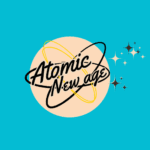Introduction
What happens when a single discovery shatters the boundaries of human potential—and sanity? In The Drug, 1961, C. C. MacApp crafts a chilling sci-fi thriller that blurs the line between progress and self-destruction. At its heart, the short story confronts a question: Should humanity control its own evolution, or are some doors better left firmly shut?
Warning: spoilers ahead! (You may want to read the original story first – find it at the bottom of the page.)
The Drug - Plot
The story follows Amos Parry, a corporate manager ensnared in a Faustian bargain when his chemist, Frank Barnes, develops an experimental drug derived from mescaline. Initially marketed as a livestock performance enhancer, the substance soon reveals far darker effects—irreversible physical and mental mutations. Meanwhile, Amos grapples with an impossible choice: suppress the drug and risk his career, or unleash it upon the world, fully aware of its horrors.
A Descent Into Greed
MacApp’s narrative thrives on tension, weaving corporate greed, scientific hubris, and existential dread into a single, unsettling vision. The Drug turns inward, dissecting humanity’s reckless pursuit of transcendence.
The story’s brilliance lies in its ambiguity—does Frank’s transformation represent devolution or the next stage of evolution? Is the drug a curse or a gateway to something greater?
Beyond its gripping plot, The Drug serves as a cautionary tale, mirroring real-world debates over bioengineering and psychotropic experimentation. Written during the 1960s, an era of growing fascination with mind-altering substances, the story feels eerily prescient, foreshadowing modern ethical dilemmas in transhumanism and neurochemistry.
Individual vs. Collective
Amos and Frank embody two stark responses to the drug’s discovery, reflecting The Drug’s central tension between self-interest and societal responsibility. Frank’s choice—a solitary metamorphosis into feline existence—prioritises personal transcendence over collective consequences. Amos, meanwhile, remains trapped in the human world of compromises, his hesitation mirroring our own fears about irreversible scientific leaps.
MacApp’s Narrative Approach.
The prose remains lean, almost clinical—a stylistic decision that mirrors the cold logic of corporate science. There are no lyrical detours or excessive world-building; every sentence serves the central dilemma.
Yet this very minimalism proves divisive.
While some will praise how MacApp trusts his audience to sit with ambiguity—others may find the open-ended conclusion frustrating.
A Legacy of Unease
Decades after publication, The Drug lingers precisely because it denies catharsis. In an era obsessed with definitive answers—from algorithm-driven storytelling to scientific triumphalism—MacApp’s resistance to explanation feels radical. The story weaponizes its omissions, transforming gaps into Rorschach tests for the reader’s own ethics.
